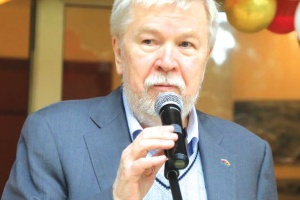poetry is intended to interest and inspire the spirit and create joy in the readers. It conveys a charm and infuses delight in those who are interested in it. In the process, the poet not only adds to the knowledge of men, it is also required to boost their happiness. Obviously, happiness is needed when man is in distress. Thus, there is no higher and no more serious problem than how to make men happy; pull them out of distress and put them in a steady state of mind.
No two persons approach poetry the same way and equally. Natural inclination becomes essential to such issues. Natural gift that equips an individual for a certain field of knowledge surpasses any endeavor or training if it is devoid of the consideration of t h e person’s in-built caliber.
Undoubtedly, training can have a strong transforming impact. Although it cannot equate the talent the individual is naturally endowed with. On the other hand, imposition is the method to recreate a person to be responsible for something he is not designed for and in which case the situation becomes absurd and rather very difficult to handle it.
First of all, no matter how theoretically equipped individuals are, their indifference to poetry is conspicuous and even if they like it, they handle it halfheartedly and therefore, they do not get to full grips with the message of the poem they read. Owing to this fact, they prefer prose to poetry; a prose is less engrossing than a poem which is capable of generating more happiness.
The difference between prose and poem is that a prose is a writing which is not poetry, which does have such things as stanzas, rhymes, metering and the like. It is not very technical that demands the reader’s high energy. The reader is only required to keep track of the idea or story from the beginning to the end. When it comes to poetry, stanzas are a group of lines in a repeated pattern that form a unit in a poem.
Abreast of this, a rhyme is a word that has the same sound with the last word of the previous line in a poem. Words that occur at the end of the two lines cannot be identified as rhyming by default even if they have the same end letter. There are two types of rhymes: perfect rhyming (the way the writer calls it) and eye rhyming; the following crude poems can demonstrate their differences.
I put my hat upon my head and walked into the strand And there I met another man whose hat was in his hand. Strand and hand sound the same even though their spellings and meanings are different. They both have similar smooth sound. As for the eye rhyming, the following poem can illustrate the situation well: It is not over though, we’re about to start Our love’s getting stronger than when we first met.
In this poem, although the last two words start and met have the same end letter/t/, and yet they don’t have the same sound. They are simply called eye rhyming. They are different and not appealing to the feelings like the perfect rhyming; they do not generate joy the reader desires to find in them; the reader jumps from one sound to the other and as a matter of fact, it reduces the beauty that ought to dwell therein.
Most notably, a poem infuses delight. Nevertheless, when men experience suffering and when they find no event of delight in action or actual life, the representation of them in poetry is painful. As a poet, the experience of the writer is such. For one, there has to be emotional provocation (delight or sorrow) to write a poem.
Either one or the other lays a driving force to emanate poetic sentiment as naturally as possible. Both of these moods strike the urge in the writer’s mind to bring out his hidden feelings in the form of a poem much better than in prose. The way we feel in particular time tunes our writing to happy or sorrow message to the reader.
While composing the poem, I always have the audience in view. One always dreams to address the audience without whom one’s efforts become worthless. Primarily, a poem, in its literary value, thrives when it is in the receipt of those who have the knack and the caliber for it; the enjoyment of poem cannot be generated by constant reading or training; it is an internal capacity that cannot be fostered by external techniques imposed on it. Even if the method seemingly appears successful, the absence of a genuine delight or sorrow exposes its inadequacy.
The writer for one, takes the advantage when suitable feelings occur to jot down on paper his ideas in a style compacted by tunes, rhythms and rhymes that characterize special music devoid of sound. Merging a poem with musical forms enables humans to attain satisfaction in its highest standard and best quality. Both poem and music predicate each other. In the real sense without one, the other is half complete.
Thus, one should bear in mind that writing a poem and composing music are the two sides of a coin in which case both rely on each other to attain perfect artistic value to infuse joy into all who happen to cross their way. As aforementioned, the joy in them is captured only by those who are endowed with the gift of nature of appreciating poetry and music. The writer, being among them, more than appreciating, he writes poems and has had a few of them published in the papers.
He employs the technique of absolute rhyming and with emersion into the imaginary world to come up with ideas that fit it; the world he misses in reality is created by his poems to earn him joyful feelings and make his life worth living; he attains the meaning of real and quality life through the instrumentality of poetry.
The world the writer lives in falls short of all the genuine essences he longs to find in it; to him, fairness, justice, love are all missing in the real world. Such things which are professed by the hypocrites only confuse the people mercilessly and the innocent due to their naivety always fall prey to such ones.
As a matter of fact, poets labor hard trying to infuse the meaning and the strength of truth into their few readers’ minds with the hope of achieving a transformed life style which is different from the one normally accepted. Delight, as the hub of the wheel of poetry, helps the readers keep moving despite the odds of life. The evil aura around the smothered genuine feelings is dispelled by poetry of the born poet.
The wise vie for it and be emancipated from the oppression imposed on them by the imposters. The imposters often counteract the positive impact of the poets’ work of enlightening. With the its ideological mortal combat, poetry has always gained the upper hand and has always won the war waged against it by the agents of the counterfeit forces.
The Ethiopian Herald Sunday Edition 7 July 2019
BY JOSEPH SOBOKA





